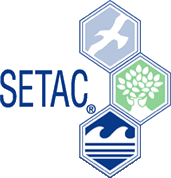These days, when many picture an academic plagiarist, they envision a student gleefully copying and pasting from Wikipedia in hopes of taking a shortcut on their coursework.
Menu
-
Solutions
-
Our Solutions
-
AcademicSurface potential plagiarism prior to publication with iThenticate’s expansive content database.
-
AdmissionsScreen personal essays for potential plagiarism and help ensure the highest level of integrity even before matriculation.
-
GovernmentEnsure the originality of public-facing content, from legal documents to grant applications, and reporting.
-
MedicalPrevent invalid findings dissemination, grant misconduct, and improper medical practices.
-
PublishingProtect your journal’s reputation by publishing only the highest quality articles.
-
-
Resources
-
Our Resources
-
FAQFind the answers to the commonly asked questions about how iThenticate works.
-
Content DatabaseComprehensive coverage you can trust across the internet, scholarly articles, and industry papers.
-
GuidanceSearch our comprehensive site for the launch, integration and usage information.
-
-
Pricing
-
Login
-
Buy Credits
 A recent survey conducted by the Pew Research Center’s Internet and American Life Project
A recent survey conducted by the Pew Research Center’s Internet and American Life Project Once it’s published, it’s permanent. This statement was made back in 2008 in a Columbia Journalism Review piece titled “
Once it’s published, it’s permanent. This statement was made back in 2008 in a Columbia Journalism Review piece titled “
 It’s been only a few months since German Defense Minister Karl-Theodor zu Guttenberg resigned after being accused of
It’s been only a few months since German Defense Minister Karl-Theodor zu Guttenberg resigned after being accused of 
 Laura Miller from Salon recently penned
Laura Miller from Salon recently penned